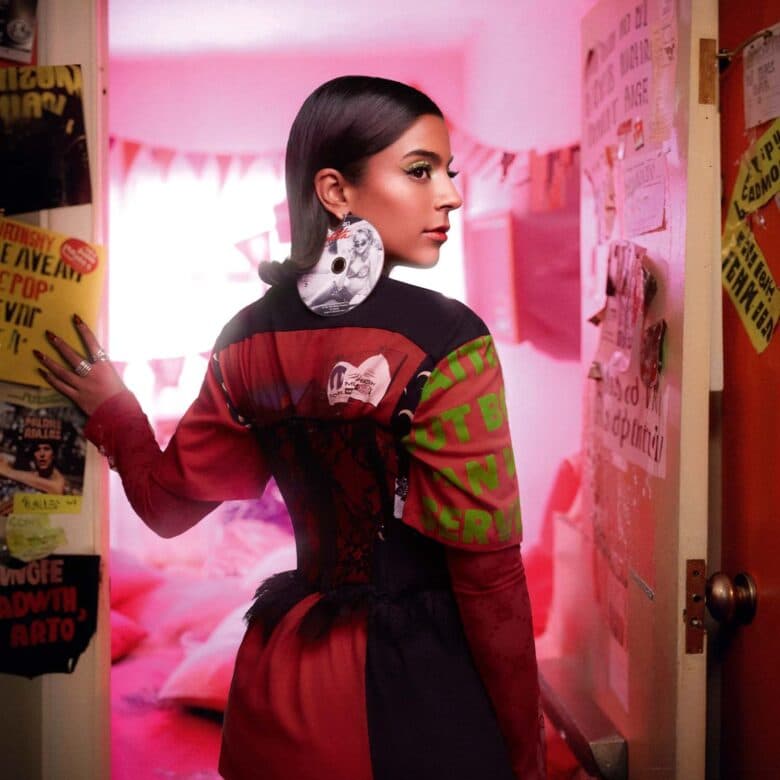Inside Gwen Stefani’s complex history of cultural appropriation

Gwen Stefani has responded to cultural appropriation criticism in a new interview with Allure, where she revealed her trips to Japan made her realise, “My God, I’m Japanese and I didn’t know it.”
After being questioned by senior editor at Allure, Jesa Marie Calaor, regarding what she had learned from the backlash of her perfume line called ‘Harajuku Lovers’, she replied explaining that her father’s job at Yamaha required him to visit Japan a lot, and as he brought her along, exposed her to the culture from a young age. “That was my Japanese influence and that was a culture that was so rich with tradition, yet so futuristic [with] so much attention to art and detail and discipline and it was fascinating to me,” she said.
In this revealing interview, Stefani stood to defend her appropriation of the Japanese culture, which she received criticism for adopting in the past. In her 2004 campaign for her first solo album since leaving No Doubt Love. Angel. Music. Baby, she took inspiration from the Japanese subculture of Harajuku Girls, subsequently taking on the style and launching her own line of fragrances, ‘Harajuku Lovers’. The perfumes were praised by the beauty industry, even going on to win The Fragrance Foundation’s Fragrance of the Year Award in 2009.
She described herself as a “super fan” of Japanese culture, going on to explain that she is “a little bit of an Orange County girl, a little bit of a Japanese girl, a little bit of an English girl.” She then went on to attempt to explain her obsession with the culture, saying “If [people are] going to criticise me for being a fan of something beautiful and sharing that, then I just think that doesn’t feel right” she said. “I think it was a beautiful time of creativity… a time of the ping-pong match between Harajuku culture and American culture. “[It] should be okay to be inspired by other cultures because if we’re not allowed then that’s dividing people, right?”
This isn’t the first time that Stefani has jumped to her own defense in a convoluted understanding of culture, telling Paper magazine in 2021 she had a “deep fascination” with the culture, and found she was “inspired” by Harajuku girls. “So I had this idea that I would have a posse of girls – because I never got to hang with girls – and they would be Japanese, Harajuku girls because those are the girls that I love. Those are my homies. That’s where I would be if I had my dream come true, I could go live there and I could go hang out in Harajuku”, she said. Comedian Margaret Cho spoke out about the performances at the time, saying it was like a minstrel show. “If we didn’t buy and sell and trade our cultures in, we wouldn’t have so much beauty, you know?” she responded.
The allegations of Stefani’s distaste span the length of her career, including appropriating South Asian, Black, Native American, and Latin cultures. In the 1990s, Stefani often wore a bindi, which is a Hindu symbol worn on the foreheads of women to show they are married. At that time, she also styled her hair into Bantu knots, which originated from the Zulu people of Southern Africa as a traditionally protective hairstyle for textured hair. Then in 2005, her music video for ‘Luxurious’ was accused of appropriating Latino culture and the fashion that stemmed from the counterculture Pachuco style from the 1930s and 1940s in an early 00s iteration.
She was further criticised for the adoption of indigenous culture in her music video for ‘Looking Hot’ with her band No Doubt, in which she wore a feathered headdress and traditional indigenous jewellery. The band then released an apology to their website addressing that their “intention with our new video was never to offend, hurt or trivialize Native American people, their culture or their history. Although we consulted with Native American friends and Native American studies experts at the University of California, we realize now that we have offended people.”
But her 2004 album Love. Angel. Music. Baby is when Stefani’s appropriation arguably reached its peak. The musician hired a group of four ‘Harajuku Girls’, as she named them, to follow her around for promo. The girls were reportedly contractually obliged to speak Japanese in public at all times, as she renamed them ‘Love’, ‘Angel’, ‘Music’, and ‘Baby’ after the album title, and had them wear Japanese school uniforms. Stefani herself never issued an apology for the ‘Harajuku Girls’, despite the incessant criticism.
Ultimately, the span of Stefani’s acts of cultural appropriation is only compounded by her excuses. As Calaor concludes in Allure: “I envy anyone who can claim to be part of this vibrant, creative community but avoid the part of the narrative that can be painful or scary.”

